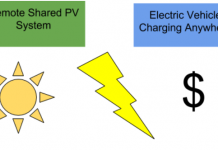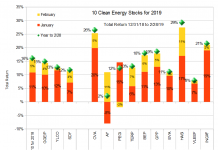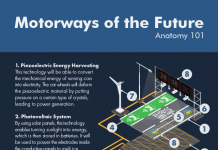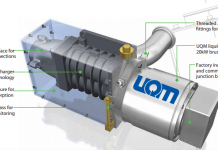There are many proposed solutions to the liquid fuels scarcity caused by stagnating (and eventually falling) oil supplies combined with growing demand in emerging economies. Some will be good investments, others won’t. Here is where I’m putting my money, and why. This second part looks at hydrogen and electrification strategies for replacing oil.
In Part I of this series, I listed four potential substitutes that have been proposed to replace oil as limited supply and growth in developing markets draw oil away from traditional users. I’ve since added a fifth to my list of potential substitutes:
- Biofuels and Biochemicals
- Vehicle Electrification
- Hydrogen
- Natural Gas
- Coal and Gas to Liquids
Part I looked deeper into the potential for biofuels to displace oil, and made some recommendations as to which stock might benefit most from this trend. In this article I’ll look at vehicle electrification (including traditional hybrid electric vehicles (HEVs) such as the Prius, plug-in hybrid electric vehicles (PHEVs) and pure electric vehicles (EVs)), and hydrogen vehicles, since they have many similarities.
John Petersen on PHEVs and EVs in One Paragraph
Readers of AltEnergyStocks.com will be familiar with John Petersen’s cost-related arguments that PHEVs and EVs are over-hyped bad policy and are unlikely to form a substantial part of the vehicle fleet anytime in the next decade. From an economics perspective, the core of his argument is that batteries are a limited and valuable resource, and they can be used most effectively to reduce dependence on fossil fuels in HEVs, rather than PHEVs or EVs. While PHEVs or EVs can use no gas, they require as many batteries as ten or more HEVs. Ten hybrids will each save 20-50% of a normal car’s gas consumption, for a total gas savings equivalent to taking two to five normal vehicles off the road. For a single PHEV or EV to save more gas than two to five normal vehicles, it will have to be driven two to five times as much as a normal vehicle when powered by electricity. This means the large battery packs of PHEVs and EVs will only make sense for vehicles that are driven much more than normal vehicles, and which can be recharged multiple times per day.
You can find another take on the economics of PHEVs and EVs direct from a Lawrence Berkley National Laboratory battery researcher here and here. He reaches the same conclusions as John, but includes interesting technical discussions of the technological barriers to making batteries small and cheap enough for widespread adoption of PHEVs and EVs.
 |
| Charge port for Nissan Leaf EV |
What Vehicle Electrification Means for Stock Market Investors
From an investment perspective, the above discussion is most useful in that it highlights batteries as the critical, high-value component that makes vehicle electrification possible. Some industry observers worry that scarcity of rare earth metals may make the electric motor in an HEV too expensive to be practical. If electric motors become more expensive, the economic solution will be to make each electric motor do more, and and build more PHEVs and fewer EVs. In either case, batteries will remain a critical component that limits the supply of electrified vehicles for the foreseeable future. Hence, the best investment in vehicle electrification will be investments in batteries.
Another lesson from the above discussion is that, if PHEVs and EVs are currently over-hyped, then the batteries used in PHEVs and EVs (almost exclusively Lithium-ion) are probably over-hyped as well, at least relative to the batteries used in HEVs (Nickel-metal hydride as well as Lithium-ion.) Some classes of mild HEV also use advanced Lead-Acid batteries. In other words, I end up agreeing with John that while Lithium-ion batteries have an extremely bright future, investors would do well not to dismiss the cheaper and more mature battery technologies. Here is John’s list of battery companies, organized by battery type.
Hydrogen
I don’t see current hydrogen technology as a viable alternative to oil, but I thought I should mention it since it does have its proponents. The main barriers to the hydrogen economy are
- The price of hydrogen fuel cells
- Lack of hydrogen infrastructure
- Inefficiency of hydrogen electrolysis
A hydrogen fuel cell converts hydrogen stored in the Fuel Cell Vehicle’s (FCV) tank into electricity, which is then used to power an electric motor. Because fuel cells are extremely expensive, it makes sense to use as small a fuel cell as possible. This can be accomplished by configuring the FCV as a PHEV, and using the fuel cell constantly while the vehicle is in operation keeping the batteries charged for when extra power for acceleration is needed. Hence, even if I am wrong about FCVs being the wave of the future, battery investors are likely to benefit as well as investors in other vehicle components.
The lack of hydrogen infrastructure and inefficiency of electrolysis (making hydrogen) both point to the conclusion that PHEVs are superior solutions for displacing oil than Fuel Cell Vehicles. There is already an electric grid everywhere in the developed world, so a charging infrastructure only requires the installation of charging points, not a new set of hydrogen pipelines as well. And if you have electricity and want to use it to propel a car with an electric motor, your car is going to be able to go much farther if you simply charge the car’s batteries than if you first convert the electricity to hydrogen using electrolysis, then convert it back to electricity with a fuel cell, losing energy in each conversion step.
Conclusion
Vehicle electrification does have potential to displace a significant amount of oil demand, but it will come mostly in the form of more HEVs, at least in the short term. PHEVs, EVs, and especially FCVs are likely to only be viable in niche markets, at least for the next decade. Hydrogen does not have much potential to displace oil, but if it does, the high cost of fuel cells means that FCVs will also need batteries. The best investments in vehicle electrification are batteries. The hype about PHEVs and EVs means that companies with less sexy battery technologies are probably better bets than Lithium-Ion companies, simply because you should be able to buy such stocks at a more reasonable price.
DISCLOSURE: None.
DISCLAIMER: The information and trades provided here are for informational purposes only and are not a solicitation to buy or sell any of these securities. Investing involves substantial risk and you should evaluate your own risk levels before you make any investment. Past results are not an indication of future performance. Please take the time to read the full disclaimer here.









Agreed wrt vehicle electrification.
Two points of clarification on hydrogen:
1. Electrolysis is not the only, let alone the preferred method of producing hydrogen. Presently most hydrogen is produced via steam reforming. Work is active on new methods of production, for example using solar.
2. A fourth issue with hydrogen is storage. Present technologies for storage all have issues. Research is ongoing, but this will likely remain an issue for the rest of this decade in most vehicular applications.
I probably should not have ignored steam reforming H2 from fossil fuels (mostly nat gas.) Here is what I have to say about it: since we can use nat gas in vehicles directly, and NG is easier to compress and store than hydrogen, why not just use nat gas and skip the extra energy consumptive step?
For more on Nat Gas vehicles, stay tuned for part III.
As for emerging technologies, I’m not interested in investing in technology that does not yet exist, and may never.
At this time, I agree with you on the use of nat gas versus H2. Longer term, as concern regarding emission of CO2 mounts, centralized reforming could enable sequestration of C. This is more difficult and more expensive if performed on-board individual vehicles.
Hi, I read your post and i appreciate your feelings that you are apologize for any rude comment for this site.and sir every person has their own feelings so why are you irritate from those people you just think about Christ and serve him.
thanks.
north vancouver florist
Hi, I read your post and i appreciate your feelings that you are apologize for any rude comment for this site.and sir every person has their own feelings so why are you irritate from those people you just think about Christ and serve him.
thanks.
north vancouver florist
Hi, I read your post and i appreciate your feelings that you are apologize for any rude comment for this site.and sir every person has their own feelings so why are you irritate from those people you just think about Christ and serve him.
thanks.
[url=http://www.divineflowers.ca]north vancouver florist[/url]
Hi, I read your post and i appreciate your feelings that you are apologize for any rude comment for this site.and sir every person has their own feelings so why are you irritate from those people you just think about Christ and serve him.
thanks.
north vancouver florist
You can now also use other forms of oil like used cooking oils. It stinks pretty bad though.
I believe the next car I buy will be electric one. But the problem for me I park my car near my block on the streets. So is there way to recharge car if it is not in your garage?
Cctv-d:
Most EV’s come with a “trickle-charge” plug that works with an ordinary 120V outlet, so you should be able to charge your car with an outdoor extension cord.
Th only problem is that charging that way takes much longer (at least 2x as long) as with the 240V fast chargers that are installed in your garage.
I think vehicle electrification may also involve belt and gear replacing and inefficient driven under-the-hood auxiliaries with efficient electric powered ones.
Robert Pattinson uses Electric powered vehicle on his latest movie, don’t know if it’s true or just a props.